Alt and Confused
Five young critics on the future of music criticism
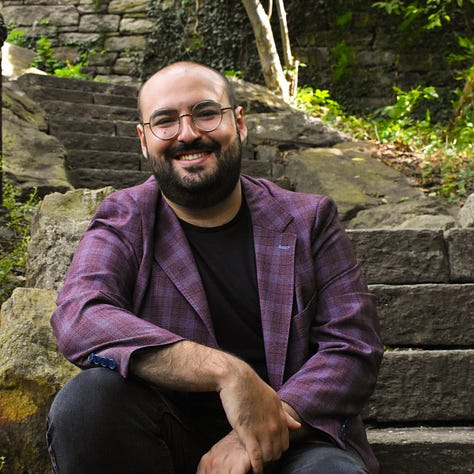
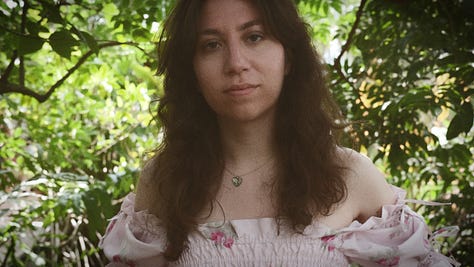
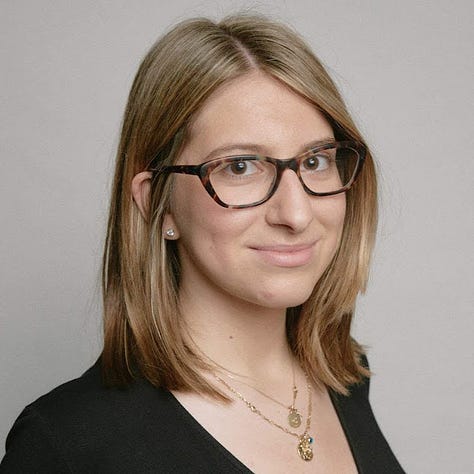
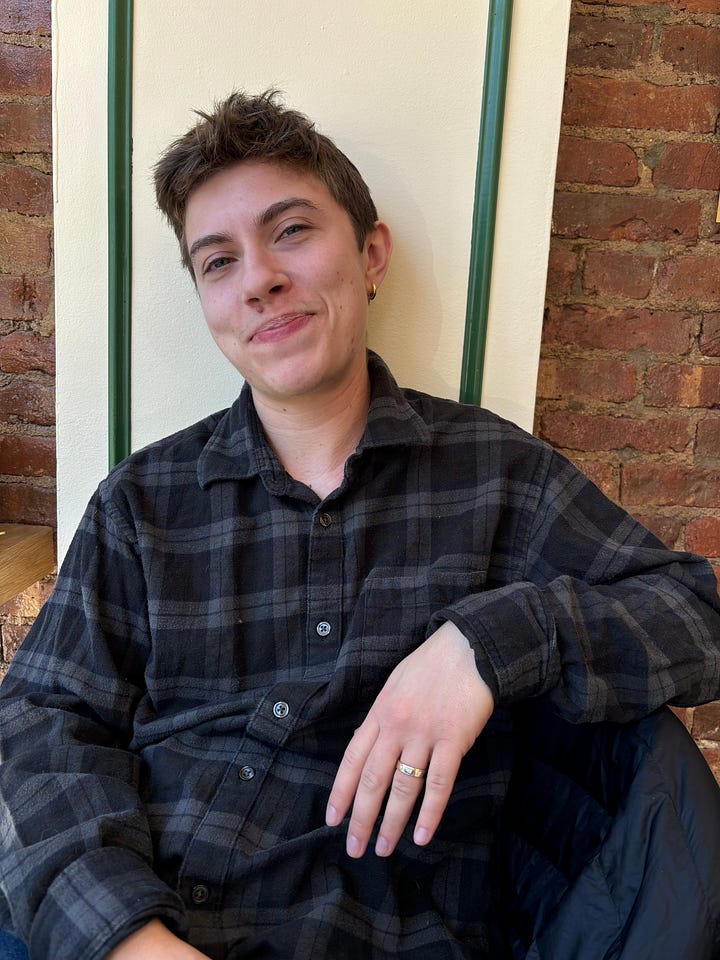
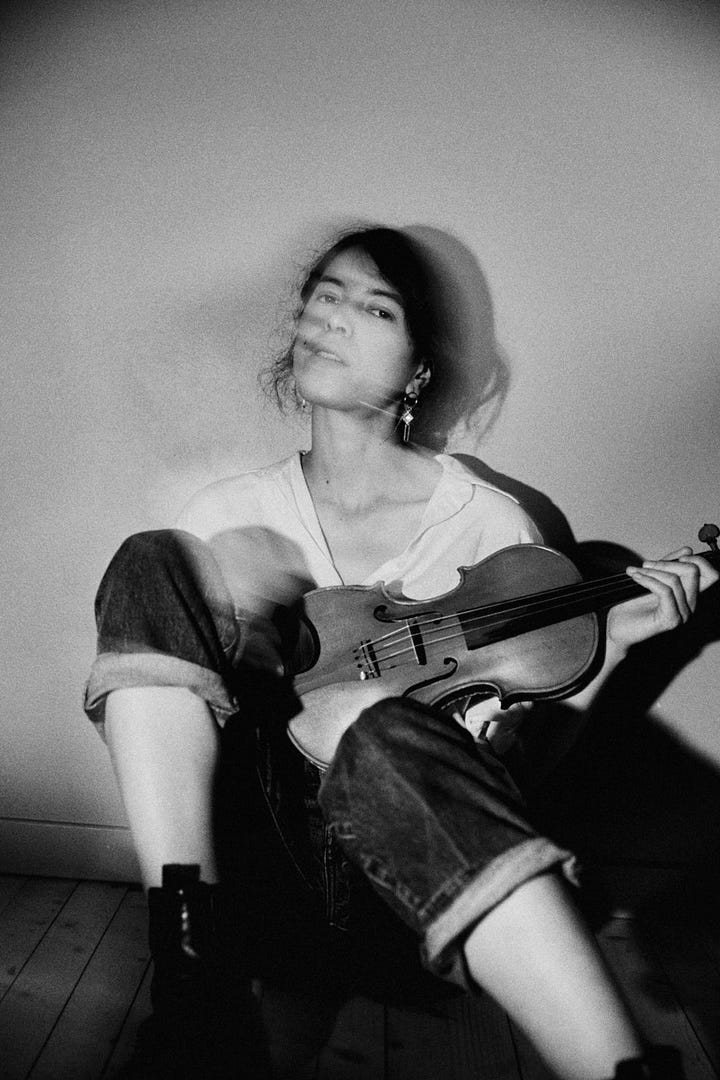
Two weeks ago, The New York Times reassigned four critics, including classical critic Zachary Woolfe and pop critic Jon Pareles. The shakeup has sparked a wave of commentary. New Yorker writers Alex Ross and Richard Brody, Times alum Steve Smith, Brooklyn Rail music editor George Grella, drummer and writer Damon Krukowski, jazz critic Nate Chinen, musicologist Will Robin, and Hell Gate’s Adlan Jackson have all weighed in. Some are basically saying that the move may sound the death knell for music criticism. Coincidentally, before the news broke, I had assembled a panel of young music critics (on the classical and classical-ish beats) to come on The Best is Noise and discuss the state of their craft. Sometimes the universe gives you good timing.
Here are the critics:
Vanessa Ague is a violinist and writer who primarily covers experimental, contemporary, classical, and improvised music. She’s written for The Wire, Pitchfork, The Quietus, Bandcamp, I Care If You Listen, The Brooklyn Rail, WNYC’s New Sounds, WQXR, Texas Monthly, and Musicworks, among others. Since 2017, she’s been running the blog The Road to Sound.
Jennifer Gersten is a violinist and writer whose feature reporting on cultural subjects and music criticism appear in such publications as The New York Times, The New Yorker, Gramophone, Bloomberg, and Rolling Stone. In 2018, she won the Rubin Institute Prize in Music Criticism. In addition to being a journalist, she is also an active performer within classical and avant-garde/improvised music in the US and Europe.
Emma Hoffman is a writer for Parterre Box, covering opera and vocal performances in New York City. She is a graduate of Barnard College, where she majored in Comparative Literature and studied voice under Harolyn Blackwell.
Max Keller writes Poison Put to Sound, a Substack about classical music and queerness. Their writing has also appeared in The New York Times, The Nation, The Brooklyn Rail, Parterre Box, Out, and elsewhere.
Emery Kerekes is a journalist, singer, and arts administrator. He is the founder and publisher of All Ears, and has contributed to Chamber Music, Early Music America, and San Francisco Classical Voice. In 2022, he won the Rubin Institute Prize in Music Criticism. Emery works for The Metropolitan Music of Art’s Live Arts department and enjoys a bit of freelance singing on the side.
What follows is a partial transcript of our conversation, recorded last Wednesday evening. You can catch part 1 of the full conversation at 2pm tomorrow and part 2 at the same time next Monday on Radio Free Brooklyn.
If you were to ask me what I think music critics should do in this time of crisis, I would say this: Focus on the music, talk to each other, and experiment. Heads down, chin up. The music will never die.
Vanessa Ague:
I have to read this quote. So, [playing Lester Bangs in Almost Famous] is one of Philip Seymour Hoffman’s greatest roles. I have this quote written down for when I’m feeling down: “The only true currency in this bankrupt world is what you share with someone else when you’re uncool.” Which I think is maybe what it means to be a music critic. To me, at least.
Emma Hoffman:
I mean, I think I probably specialize in one of the most uncool things of all, which would be opera.
Ben Gambuzza:
I wish I had a clap track. I’d give you an applause.
Emma Hoffman:
I think Ocean Vuong gave an interview the other day about his students, and he’s talking about how this sense of cringe has really impeded their creative abilities. And we live in a world that’s so allergic to authenticity—in the sense of feeling your emotions authentically, of willing to expose yourself to cringe. And I’m as guilty of that as anyone else. And so I think being a critic, it’s caring enough to expose yourself to the cringe. It’s an expression of your authentic experience in the moment. At least that’s how I see it. And feel free to disagree.
Max Keller:
I definitely cringe at things I’ve written. I mean, there’s a difference between cringing at yourself and then other people reacting to, like you said, a sense of someone being too authentic, being too honest. I think either Alex Ross or Tim Page said something like that: What’s really difficult about learning to write music criticism is that you’re essentially learning in public. And especially when you first start writing something like concert reviews, you’re going to make so many mistakes and people are going to see those mistakes, and you have to kind of open yourself up to that. And it’s really hard, but that’s how you learn fast.
Emma Hoffman:
That’s the weird tension in all of this, isn’t it? I’ve come into this fairly recently—I think you’re more prolific than I am—so I’ve made a ton of mistakes. People who read my work comment on those mistakes. I’ve had artists—
Max Keller:
On Parterre Box, people really, really comment.
Ben Gambuzza:
You probably get the most engagement out of all of us.
Emma Hoffman:
It’s great that people are engaging. On the other hand, you’re constantly getting revision. I’ve been through high school creative writing workshops, so I think I have a somewhat thick skin, but, going back to what Max was saying about learning on the job, I have these phenomenally knowledgeable opera queens commenting on my posts. And then I’ve had artists reach out, comment on my posts, and say, you completely misunderstood what I did. And that’s sort of hard to take because it’s like, well, this was my authentic experience at the moment. But I’m feeling that cringe, and I’m sure they felt my cringe upon them. And so it’s this weird exchange of critique, but also self-critique. And we’re all sort of wrapped in this web of trying to figure out how we really feel about something and how we really come to understand things.
Ben Gambuzza:
What’s so interesting to me about the comments on your pieces, though, is it seems like the majority of the comments are talking about the music, not the review. They take your word for it and then use that as a point to then say what they want about music. And then there’s more music critics in the comment section, and I think this is a beautiful relationship. I wish we had more of that.
Max Keller:
There are also a lot of comments that are like, this is the stupidest review I’ve ever read. But I really enjoy the comments on Parterre Box because they’re so totally unfiltered and people are so knowledgeable. And also some people are so wrong. But it’s helpful. There’s a certain discomfort in this sense of being perceived by someone else and it not aligning with your self-perception. I think that back and forth is really wonderful and healthy and I enjoy it a lot, even when it’s not always that nice.
Ben Gambuzza:
I wanted to ask a little bit about your experiences with editors. Jennifer, you wrote an article for The New Yorker in 2021 about an Instagram account that posts videos of somebody smashing violins. Tell us about that first editorial experience there.
Jennifer Gersten:
I’ll actually speak a little bit generally about editors. Of course, I’m very grateful to any editor who’s worked with me and who’s willing to take on my ideas and bring them to fruition. However, I do think that there’s this fantasy that maybe we’re all familiar with: These old Condé Nast days, yellowed pictures of writers working with editors, having these long relationships in which the editor is kind of like your teacher, in the way that, in some cases, when you go through conservatory, your teacher is the one who guides you through your professional life and in many other dimensions of your life. So yeah, I guess I kind of feel as though I was born in the wrong era for that kind of editorial mentorship. But then, of course, you have to make your way and you have to figure out other ways to teach yourself.
Ben Gambuzza:
Do you need an editor?
Jennifer Gersten:
Yes.
Emma Hoffman:
Most definitely.
Emery Kerekes:
Yes. But no one’s saying that you can’t be your own editor. I’ll put that out there. I mean, I think that the role of the editor is very important, and I don’t think I can take on the role of writer and editor in the same day. I can edit my own work the next day after I’ve slept on it. I think part of the thing I love about the editors I work with is they know how to get the best out of me. The best editors, without even knowing you first, know what you’re trying to say. And especially as someone who sometimes struggles to pull the words out of my head, as I’m sure we all do.
Emma Hoffman:
I mean, I’ve messaged Emery on Facebook— (Forgive me for using Facebook.)
Emery Kerekes:
I think that’s my shortcoming more than yours, but.
Emma Hoffman:
It takes two to tango. I’ve messaged him a paragraph and then asked, does this actually make sense? Because sometimes you don’t even know what you really mean until you say it to somebody else. And at the end of the day, what we’re doing is communication, and you always need a partner in that, whether that partner is yourself the next morning or your friend at one in the morning over Facebook messenger.
Ben Gambuzza:
Is there any advantage to not having an editor? I ask because three of you have blogs. Vanessa’s is The Road to Sound, Emery’s is All Ears, and Max’s is Poison Put to Sound.
Vanessa Ague:
My blog now is just me, but when it started, I had an editor. I have been really blessed, when I started writing music criticism, to work with Steve Smith, who is a wonderful New York experimental, classical, all-things-music critic. And Will Robin, who is a wonderful DC professor, critic, and musicologist. Will really encouraged me to make The Road to Sound more of a thing. For a minute, I was just putting my takes out there, and I went to the Bang on a Can summer media festival and met him there and he helped me edit quite a few of those articles that I started doing when I was taking it more seriously. So I think it’s crucial to at least be able to conjure that voice if you’re going to write on your own.
When I started blogging, it was just because I was seeing a lot of shows in the city and nobody was talking about it. And everyone is always talking about how classical music is dead, contemporary classical music has no audience, experimental music is dead, everything is over. And it’s not. It’s alive. It’s living. It’s here. And I was like, I will be the one to document it. And so then it was just a mess because I was sort of writing things into the void. And so getting that editor’s ear in my ear was really helpful. And I’ve also worked quite a bit with Philip Sherburne, who’s a really fantastic editor at Pitchfork. He has edited at least 25 of my reviews and he’s seen a lot of bad texts from me. So a lot of times when I’m writing for my blog, I’m reading a paragraph and I’m like, what would Philip say? And then I know what to write.
Ben Gambuzza:
The scene is so alive. Your scene. So many things in my experience with classical music are so alive.
Vanessa Ague:
My thought is just, if I can make a March Madness bracket [of experimental music venues in New York] and I’m having to cut venues off, there’s a market for it. If I can think of 80 venues in New York City putting on experimental music, that’s kind of unreal. So I have always sort of pushed against this “New York’s in the past,” “the 80s are over,” “Glenn Branca’s dead” thought and wanted to say, no, so much is happening. There are so many people who are making music and I care a lot about documenting it. And so having the blog was a really good way of doing that. I would say now my writing practice is so many different things, but that was the start and still the core.
Emery Kerekes:
I had a really interesting conversation with I can’t remember who, but about how the definition of “is this dead or alive?” or “is this viable?” is so heavily warped based on what the music industry has become—this thing that is very profit-driven. If it’s not making a profit, is it alive? Is it viable? Yesterday, I had a very interesting conversation with a conductor friend of mine, Ian Niederhoffer, about how, in points of financial instability—things like recessions and pandemics—the window of musical organizations that get a share of the limelight starts to get smaller and smaller and smaller, until, I mean, eventually in some dystopian future, the New York artistic landscape is the Met Museum and Carnegie Hall.
Vanessa Ague:
But I think it’s all about how you define— That is saying that what matters most is institution. And I push against that big-time. It’s so hard with classical music, or larger productions like opera—it’s so much money that you need to be able to pay people for their work and make a good production. And so that can be really hard for a small organization. And obviously the whole grants system of this country is falling apart. But people will find a way to make art. And I think as critics, it might be on us to find it and keep it alive. And I’m okay with the institutions going. Maybe that’s a crazy thing to say, but I’m okay with it. Because I think it’ll live.
Emery Kerekes:
I’m so glad you pushed back. That’s exactly what I was looking for. But I think one thing that a lot of us strive to do, whether we’re talking about the institutions or the things aside from them, is, it’s not just about the music, it’s about the personalities behind it. Hell Gate published a really interesting article the day after the New York Times reassigned those four critics, and one of the things I took away from that article is, are the critics going to be the people who are on the ground really eating and breathing the stuff? There was a time when the critic had to have that iron curtain up between them and the performer, and there are publications that still operate that way. I have a day job in arts admin that I love and will never give up, and there are publications that won’t take my work because of it. However, I believe that, because I exist in the world from multiple angles, it enriches my writing in a way that is intangible and perhaps diminishes my objectivity, but that I think also grants color to the life. I live through music. And that’s one thing I try to write about on my blog. Long live the party report! Tell me about who was at the party. Tell me about why you like them and what they said to you. The other day, I was at a party, and a former member of the Emerson Quartet was there. It was on this crazy bar boat all the way west on 125th Street called The Baylander. I came upstairs holding two bright blue drinks, and he just looks at me and he goes, “They’re blue!” [laughs] I was like, “Yeah, they’re blue! I love a frozen cocktail in the summer.” And then we just started chatting about blue drinks.
Ben Gambuzza:
This is such a good point. I want to do a blog called Among Those Present, and I just want to write about who’s in the room and what they’re saying.
Vanessa Ague:
Has anyone read As Serious as Your Life?
Ben Gambuzza:
No.
Vanessa Ague:
By Val Wilmer. It’s a book documenting free jazz in New York City. That’s a good example of something that is sort of in-the-room.
Ben Gambuzza:
And it doesn’t mean we all have to do it, but it is limiting to write just about music and how it sounds. Although the danger is getting away from that entirely. But I think if people are writing about something that they love, they’re never going to actually get away from the subject.
But why do we even want people to listen to the music? Why do we care so much?
Emery Kerekes:
I really like making people excited about what I’m excited about. I think this is something wonderful and I’d like to share it.
Emma Hoffman:
I think we have to—and I don’t want to sound hoity-toity here—
Ben Gambuzza:
Please sound hoity-toity.
Emma Hoffman:
I think there’s a difference between listening and listening. I mean, the amount of hours I spend at my day job listening to a podcast or listening to any album of any kind or genre while I crank out some report or communications plan—I’m listening, but it’s listening in the sense of drowning out. And I think when I’m there at Carnegie Hall, at the Park Avenue Armory, at the Met, or somewhere else, and I have my notebook, I’m listening and I’m in time in a way that I wasn’t in time before. Music is time. So much of life is just going with time. I think music and listening, really listening, provides us with the opportunity to be in time. And I think there’s a real lack of that nowadays, especially because every kind of music is so easily accessible. I can be cleaning my kitchen and listening to Bartok’s The Wooden Prince, but when I go to the New York Philharmonic and I am listening to the Phil play The Wooden Prince, I’m hearing it. I’m listening to it. I’m being in it. And I think criticism, it’s communicating that moment to an audience who may not have had the opportunity to be in time with the artists, with the performers.
Ben Gambuzza:
What are we going to do? How are you feeling about your own futures as music critics?
Emery Kerekes:
Steve Smith, I think, put it quite well when he said, there’s lots of work, but no career. For music journalists, and, to an extent, for journalists in general. Journalism is a field that’s undergoing some really vulturous cuts. You’ve got publications leaning into the simultaneous death of print and local journalism. Not to beat up on the hometown paper—although if there’s any time to do it, it’s now—the New York Times restructuring many of their desks so that they’re less focused here and more focused on sort of being this voice of the universe to, in some ways, make a quick buck. The professional full-time critic I think is probably going the way of the dodo, but it goes back to that question earlier of, who’s going to take up the torch? And I think that it is, to an extent, incumbent on the practitioners to take up the torch.
I view writing as a very integral part of my artistic practice. And one thing that we used to talk about at Which Sinfonia, [where Jennifer was also a contributor], was this idea of writing as part of the artistic practice, not just for expressing to other people, but for helping to get your own juices flowing as a creative. I think that the words I want to read about the scene are from the people who are going to be the most in it and not the ones who are the capital “C” critics who had the cushy—“had,” past tense—the cushy jobs that allow you to sort of remove yourself from that scene entirely and view it entirely as an outsider.
Ben Gambuzza:
I think something that’s gotten lost is personality. George Bernard Shaw was a really prolific music critic in England in the late nineteenth century, and he was a personality in his criticism.
Emma Hoffman:
It’s interesting that you bring up personality in terms of criticism and reviews because it’s a real question of, how much of yourself do you put in? Obviously you’re putting in yourself as the listener, but how much of your own experiences and your own biases do you put in? I always feel a little weird when I lead with a personal anecdote, which I often do in my reviews, and I’m like, well, am I trivializing this? Am I putting myself too much in it? Is this even relevant to a large readership anymore? If it’s just, I’m sitting next to my dad at Carnegie Hall and I go on this train of thought and then I start talking about Mahler—
Ben Gambuzza:
But isn’t that more relevant? I mean, more people have experience with dads than have experience with classical music.
Emma Hoffman:
I mean, isn’t Mahler all of our daddy?
[all laugh]
Ben Gambuzza:
But I think people love personal anecdotes. You don’t have to be a personality, but I like to read people who don’t seem full of themselves who are talking about what they’re experiencing.
Max Keller:
I don’t know how I feel exactly about writing about myself, and I am always kind of pushing against it, but I do think that I include a lot of my own sensory experience. Because I think being at a concert is about relaying your experience of this performance and what you’re hearing and your experience of listening. There are a lot of other senses being engaged, too, that I think are also very important. And I feel like I often, whether intentionally or not, have a strong sense of my body being in this space and what I’m experiencing and feeling.
Emma Hoffman:
Max’s piece in the Times about taking voice lessons [after taking testosterone]—I don’t want to say that I felt in your body, but I felt a resonance in my body, and I think that it was really moving and affecting.
Ben Gambuzza:
Are you ever going to stop writing about music?
Vanessa Ague:
Okay, so there have been many points where I have thought I should not be writing about music. And I’ve always come back, so I’m going to say, I will. It can be really difficult. I think maybe quite a lot of us in the room feels this way, but I think it can be really difficult to be a woman in the room. Sometimes it can get frustrating really quick.
Ben Gambuzza:
In the room as a critic?
Vanessa Ague:
Yeah, noticing I’m definitely not being taken as seriously or— I don’t want to get into it, but there’s a lot of tension that can exist in this space, especially when you’re writing about experimental music or things where there are fewer critics who are women. So, I’ve felt pushed out sometimes. But, honestly, what keeps me going is knowing that perhaps someday there will be somebody who’s 15 watching Almost Famous, like me, who’s a girl, who’s alt and confused, and knowing that I wrote will help her.
Emery Kerekes:
I have also considered giving up writing a number of times. I will say that writing professionally is the thing in this world which makes me the most mentally ill. It is just anxiety and self-doubt and very type-two fun. I write mostly for myself these days in a way that is just a little truer to how I am on a daily basis. It goes back to who your editor is. I never thought that I was having my voice stamped out of an article, but you have to write differently when you’re writing for an editor. And I’ve thought a lot about perhaps stopping that kind of writing for someone else entirely. It’s not going to happen. I like it too much, unfortunately. It’s like a really brutal addiction. And of course, I’m going to go back to write another large long-form article like the one that I put out in Chamber Music that you were mentioning. And I will have forgotten how to do it.
Ben Gambuzza:
You forget every time.
Emery Kerekes:
Forget every time.
Ben Gambuzza:
Every time. But that’s the great thing. If there were a formula, then we’d just be turning out Ford automobiles.
Emery Kerekes:
Or 500-word newspaper reviews.
